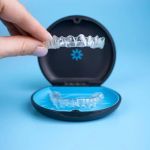How to Effectively Prevent Tooth Sensitivity: Tips and Insights
Have you ever felt a sharp, sudden pain when drinking something cold or hot? Or perhaps while brushing your teeth, you experience discomfort? If so, you're not alone. Tooth sensitivity is a common problem that affects millions of people worldwide, and understanding the causes and solutions can make a significant difference in managing this discomfort. In this article, I’ll walk you through the best ways to prevent tooth sensitivity, share personal experiences, and offer practical advice based on both science and my own journey to finding relief.
1. What Causes Tooth Sensitivity?
Tooth sensitivity, medically known as dentin hypersensitivity, occurs when the protective enamel of the teeth wears down, exposing the underlying dentin. Dentin contains tiny tubes that connect to the nerve of the tooth. When these tubes are exposed, stimuli such as cold, hot, or sweet foods can trigger pain. Various factors can lead to this condition, such as poor oral hygiene, brushing too hard, gum recession, or even consuming acidic foods and drinks. But how did I realize I had tooth sensitivity? It started with that sharp pain when drinking my morning coffee. A quick visit to my dentist helped me understand the root cause, and now I take proactive steps to avoid further discomfort.
2. The Role of Proper Brushing Techniques
Brushing too aggressively or using a hard-bristled toothbrush can cause enamel erosion, leading to tooth sensitivity. It's tempting to scrub your teeth hard to remove plaque and food particles, but that can do more harm than good. I was guilty of this when I first noticed my sensitivity. I thought that a more forceful brushing technique would be more effective, but instead, it only made things worse. Now, I use a soft-bristled toothbrush and gently brush in a circular motion. It's crucial to remember that brushing too hard can wear down the enamel over time, which is the last thing you want if you're already struggling with sensitivity.
3. Choosing the Right Toothpaste for Sensitivity
One of the most effective ways I’ve managed tooth sensitivity is by switching to a toothpaste formulated specifically for sensitive teeth. These toothpaste varieties contain compounds that help block the nerve pathways in the teeth, offering relief from sensitivity. The first time I tried a toothpaste for sensitive teeth, I noticed a significant difference after just a few days. It’s important to choose one with fluoride to protect your enamel, and if you haven’t tried one yet, I highly recommend giving it a go. If you’re unsure which one to choose, your dentist can provide recommendations based on your specific needs.
4. Avoiding Acidic Foods and Beverages
Acidic foods and beverages, such as citrus fruits, coffee, and soda, can contribute to the erosion of enamel and make tooth sensitivity worse. I had no idea that my daily habit of sipping lemon water was contributing to my sensitivity. When I reduced my intake of acidic beverages, I noticed a marked improvement. If you’re prone to sensitivity, try to limit your consumption of these foods or drink them with a straw to minimize contact with your teeth. Additionally, always rinse your mouth with water after consuming acidic foods to help neutralize the acid and protect your enamel.
5. The Importance of Regular Dental Visits
One of the best ways to prevent tooth sensitivity is through regular dental check-ups. Visiting your dentist every six months allows them to catch any signs of enamel erosion, cavities, or gum disease early. After my first dental visit, my dentist showed me areas where my gums were receding and suggested treatments like fluoride applications to strengthen my enamel. These regular check-ups not only ensure that I stay on top of my oral health but also provide valuable advice on managing sensitivity. Don’t wait for the pain to become unbearable – schedule your next dental appointment soon!
6. How to Handle Gum Recession
Gum recession is another common cause of tooth sensitivity, and I’ve personally dealt with it. As our gums recede, the root surfaces of our teeth are exposed, leading to pain when the area comes into contact with cold or hot stimuli. If you notice your gums are receding, it’s important to act quickly to prevent further damage. I was advised by my dentist to use a fluoride gel or special mouthwash that helps re-mineralize the roots. In some cases, more advanced treatments, such as gum grafts, may be necessary. But the good news is that catching it early can help you manage the condition effectively.
7. Natural Remedies for Tooth Sensitivity
While professional treatments are important, there are also natural remedies that can help soothe tooth sensitivity. I’ve found that using a mixture of warm water and salt can reduce inflammation and promote healing in the gums. Another remedy I’ve tried is oil pulling with coconut oil, which is believed to reduce plaque buildup and promote overall oral health. While these remedies aren’t a substitute for proper dental care, they can provide some relief between visits to the dentist. Just remember, always consult with your dentist before trying any home remedies, especially if your sensitivity persists.
8. The Importance of a Balanced Diet for Oral Health
What you eat plays a crucial role in your tooth health. A diet rich in calcium, vitamin D, and phosphorous can help strengthen your teeth and enamel, reducing the risk of sensitivity. I made the mistake of neglecting my diet, but once I started incorporating more dairy products, leafy greens, and nuts, I noticed my teeth felt stronger and less prone to sensitivity. Additionally, drinking plenty of water helps to wash away food particles and keep your mouth hydrated, which is essential for overall oral health.
9. The Psychological Impact of Tooth Sensitivity
Tooth sensitivity can affect more than just your physical comfort; it can also have a psychological impact. I’ve personally felt frustrated and self-conscious about avoiding certain foods or social situations due to my sensitivity. When you can’t enjoy your favorite foods or drinks without wincing, it can affect your overall quality of life. However, knowing that there are solutions available made it easier for me to cope. Sharing my experience with friends and family also provided emotional support and reassured me that I wasn’t alone in dealing with this issue.
By understanding the causes of tooth sensitivity and taking proactive steps to address them, you can significantly reduce discomfort and enjoy life without worrying about that sharp pain. Whether it's through proper brushing techniques, using the right toothpaste, or avoiding acidic foods, there are many ways to manage tooth sensitivity effectively.
For more personalized recommendations on the best dental care for sensitive teeth, I highly encourage you to visit Dentistry Toothtruth, where you can find expert advice and dental services tailored to your needs.







 Bindi Patel D.D.S4.0 (77 review)
Bindi Patel D.D.S4.0 (77 review) Marshall H Titus, DDS0.0 (0 review)
Marshall H Titus, DDS0.0 (0 review) Smiles of Elgin4.0 (46 review)
Smiles of Elgin4.0 (46 review) Yonkers Dental Implants Center4.0 (63 review)
Yonkers Dental Implants Center4.0 (63 review) Dr. Tom Family & Cosmetic Dentistry4.0 (272 review)
Dr. Tom Family & Cosmetic Dentistry4.0 (272 review) Smooth Dental and Orthodontics4.0 (371 review)
Smooth Dental and Orthodontics4.0 (371 review) The Importance of Oral Health Education During Pregnancy for a Healthy Pregnancy
The Importance of Oral Health Education During Pregnancy for a Healthy Pregnancy Best Tips for Brushing Your Teeth Properly for Healthy Gums: Essential Techniques for Oral Health
Best Tips for Brushing Your Teeth Properly for Healthy Gums: Essential Techniques for Oral Health Why Skipping Dental Checkups Can Lead to Bigger Oral Health Problems
Why Skipping Dental Checkups Can Lead to Bigger Oral Health Problems Advantages of Porcelain Dental Restorations
Advantages of Porcelain Dental Restorations How Can Diabetes Cause Tooth and Gum Problems? Preventing and Managing Oral Health Issues
How Can Diabetes Cause Tooth and Gum Problems? Preventing and Managing Oral Health Issues Healthy Habits for Promoting Good Oral Health and Hygiene: Tips for a Healthy Smile
Healthy Habits for Promoting Good Oral Health and Hygiene: Tips for a Healthy Smile